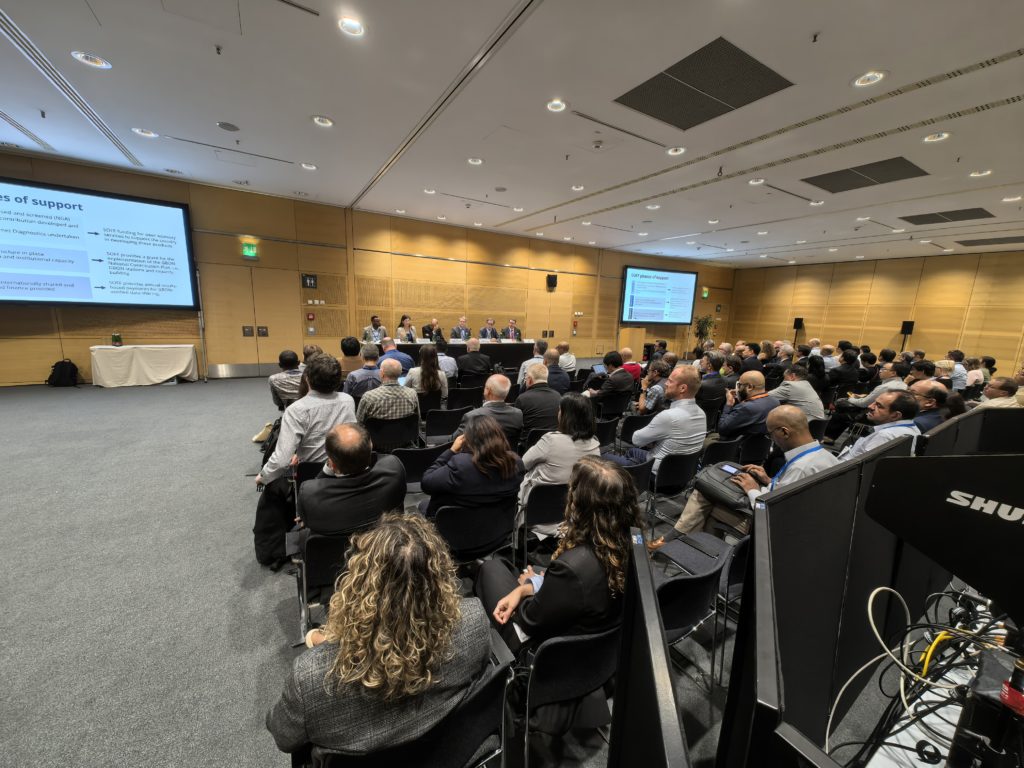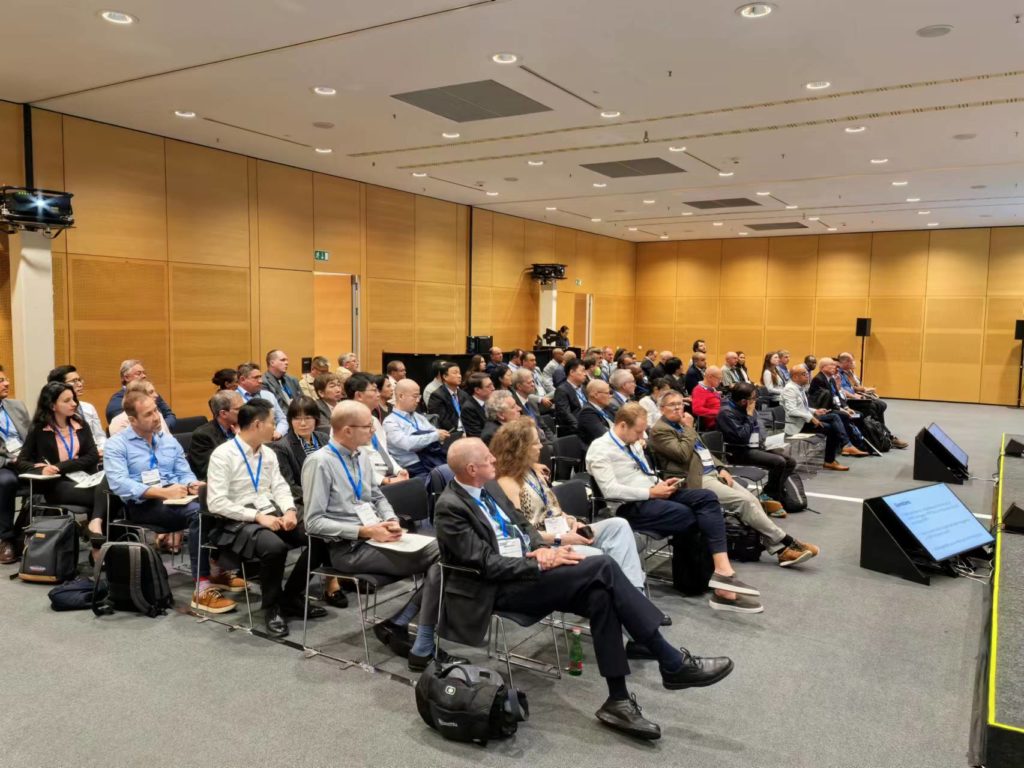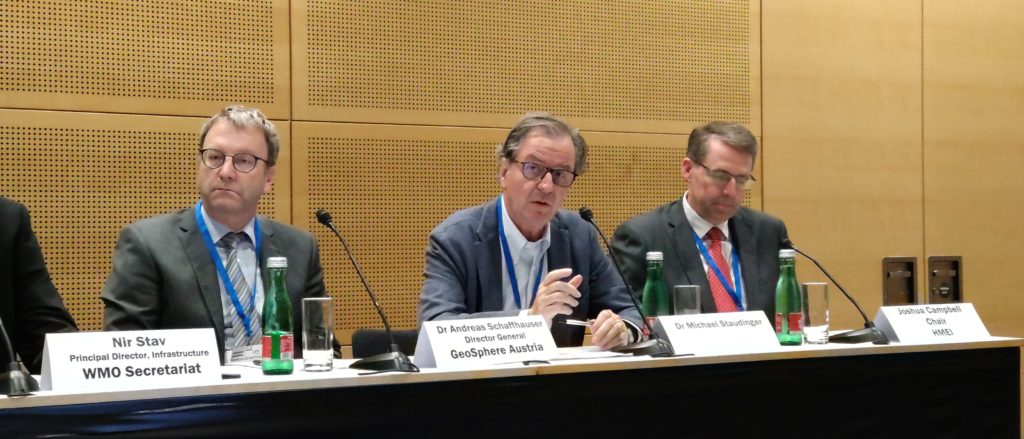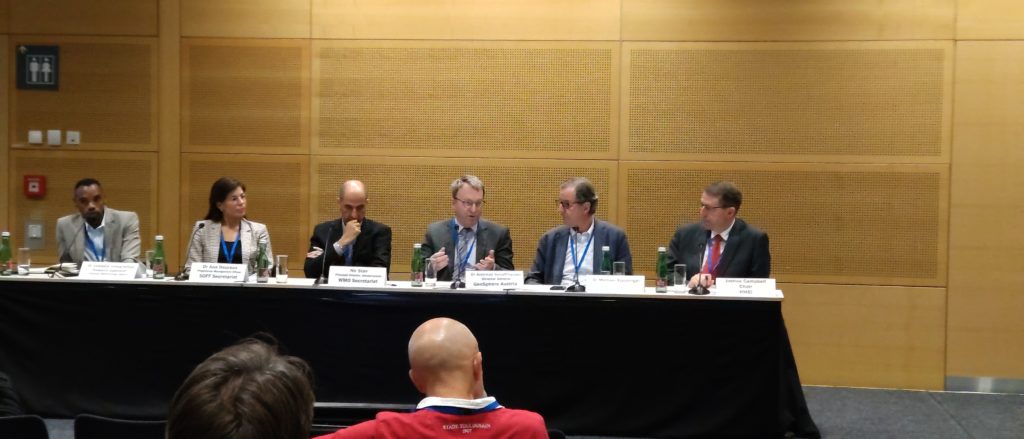Building effective public-private business models for the benefit of national meteorological services – TECO-2024
Vienna, September 2024. On the sidelines of the Meteorological Technology World Expo and the WMO Technical Conference on Meteorological and Environmental Instruments and Methods of Observation (TECO-2024), an Open Consultative Platform on the Global Basic Observing Network (GBON) and the Systematic Observations Financing Facility (SOFF) brought together leaders from the public and private sector.
The event, co-organized by GeoSphere Austria, the WMO Secretariat, the SOFF Secretariat and the HydroMeteorological and Environmental Industry Association (HMEI), provided an open forum for participants to discuss the role of the private sector and industry in SOFF implementation and opportunities to create incentives and viable public-private models that would ultimately benefit WMO member countries. The main challenges were outlined by the speakers stating that SOFF currently provides investment support to eligible Least Developed Countries (LDCs) and Small Island Developing States (SIDS). In these countries, the solutions for meeting GBON requirements differ from developed countries, and it is imperative that countries have options that are fit for purpose.
Dr. Vedaste Iyakaremye from the Rwanda Meteorology Agency gave the perspective of a country already implementing the SOFF investment phase. Regarding public-private engagement, Dr. Iyakaremye stated, “Challenges working with the private sector include limited financial incentives and data ownership and accessibility but together with our peer advisor, the Finnish Meteorological Institute, and Implementing Entity, UNDP, we identified opportunities for engaging the private sector in SOFF implementation.”
The participants identified that important areas for industry to improve support to SIDS and LDCs include: interoperability of equipment which will help countries to integrate their networks and providing options that ease operations and maintenance especially in harsh conditions or remote areas. The necessity to enlarge systematically the observation horizon with new techniques in order to improve global numerical models was seen by participants as a possible future step in improving the cooperation between countries, the hydro-meteorological services and the private sector. As a follow up from the meeting, it was recommended to identify a clear mechanism for feedback and exchange between HMEI and SOFF. HMEI is a key member of the SOFF Advisory Board, providing vital strategic advice to the decision-making body, the Steering Committee.
Joshua Campbell, VP of Strategy and Business Development at Campbell Scientific and Chair of HMEI, closed the event stating that “All of us in this room are working toward a common objective, and we need to remember the needs of countries and communities are at the core. This meeting is the start of a longer discussion and collaboration between the public and private sector to successfully implement SOFF.”








YOU MAY ALSO LIKE...






